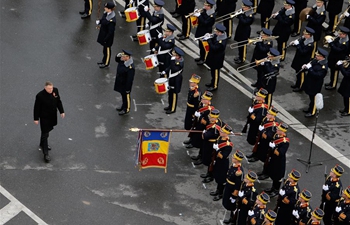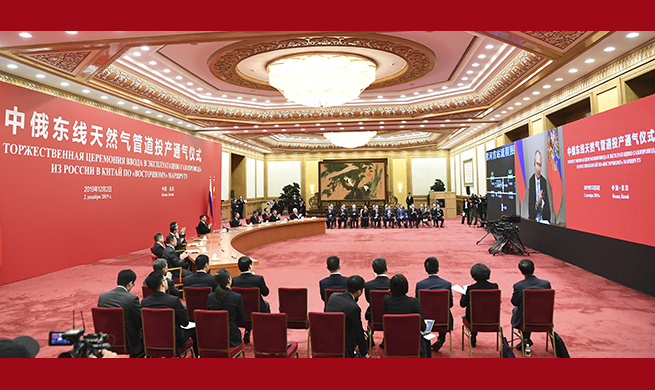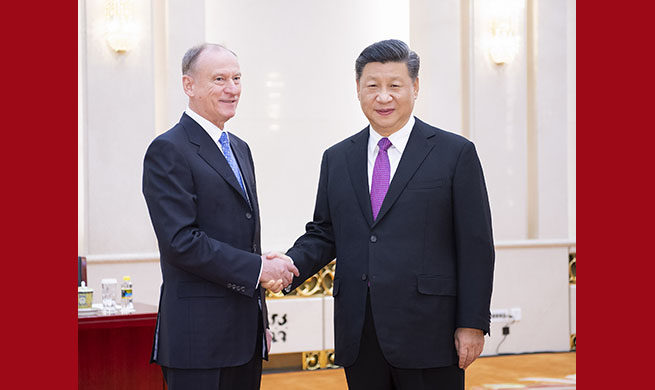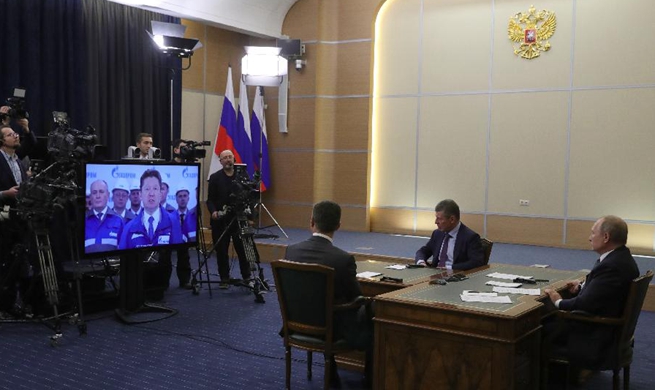by Emad Drimly
GAZA, Dec. 2 (Xinhua) -- In recent weeks, there have been reports of progress in talks on a long-term truce deal between Hamas rulers of the Palestinian Gaza Strip and Israel to end years of violence. However, these moves would remain mere wishes if not implemented on the ground.
Palestinian political observers believe that the pace of events is accelerating rapidly with a possible announcement of the desired truce that probably would be brokered by Egypt, Qatar and the United Nations, in parallel with statements by Israeli officials on a plan to ease the blockade imposed on Gaza since 2007.
Israeli newspapers reported on Monday that an Israeli plan is being prepared for the establishment of industrial zones along the fence separating between the Gaza Strip and Israel.
Israeli daily Haaretz reported that Israel and Hamas continue to hold indirect discussions on a long-term agreement. The daily said that there are several signs that a deal might be reached.
In its report, Haaretz said that Israeli Transportation Minister Yisrael Katz has resumed talking about building an artificial island off the Gaza coast.
At the same time, the heads of the regional councils in the Gaza border area also presented plans for establishing industrial zones along the border for Palestinians from the Gaza Strip to work there.
Palestinian political experts said that Gaza may be close to a political and economic breakthrough in light of diplomatic moves at the regional or international levels to support the truce agreement.
Hossam Dajni, Gaza-based writer and political analyst, said that Israel seeks to improve its image in front of the world amid its serious attempts to normalize relations with Arab countries.
"It is clear that what is happening in Gaza is the stage of biting the fingers," he said.
"The international community is dealing with a peaceful solution in light of the fact that Hamas is no longer an obstacle to a settlement in the Palestinian territories, but is rather an essential part of any political solution," the expert told Xinhua.
The Gaza Strip has been placed under a tight Israeli blockade since Islamic Hamas movement seized the territory by force in 2007.
In the past decade, Israel and Hamas have been engaged in three major wars that claimed the lives of thousands of Palestinians and Israelis.
Egypt, the UN and Qatar have been mediating for more than a year to introduce humanitarian facilities to Gaza and prevent any military confrontation between Palestinian factions and Israel.
The Gaza Strip has witnessed relative calm recently after the end of a military escalation between the Palestinian Islamic Jihad (PIJ) and Israel in mid-November.
The violence was sparked by the killing of the PIJ's senior commander Baha Abu al-Atta.
The PIJ responded by firing hundreds of rockets into Israeli towns and cities, while Israeli warplanes bombed military sites belonging to the PIJ. For the first time, Hamas military sites were excluded in the recent round of violence.
The escalation left 36 Palestinians killed, before Egypt and the UN intervened to broker a truce.
Hassan Abdo, political expert, said that the Palestinian factions "managed to impose their equation on the ground, forcing Israel to accept political solutions which it rejected in the past."
The expert said that Israel always relied on excessive use of force against civilians in the Gaza Strip, mainly against protesters participating in weekly anti-Israel rallies, better known as the Great March of Return.
Abdo pointed out that Israeli citizens, who suffer from the military conflict with the Palestinian factions, "became another tool of pressure on the Israeli government to put an end to military confrontations with the Palestinians in Gaza."

















